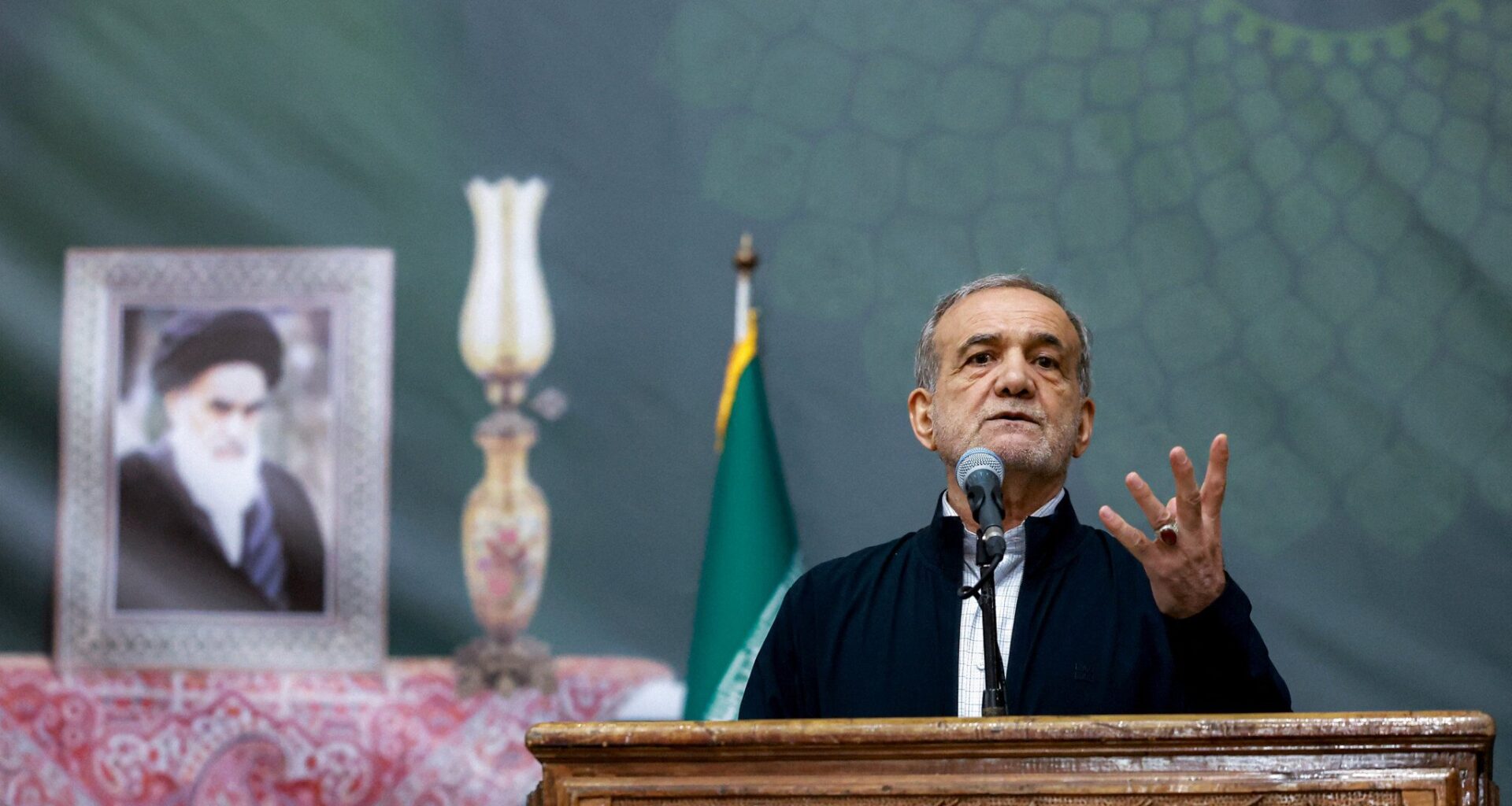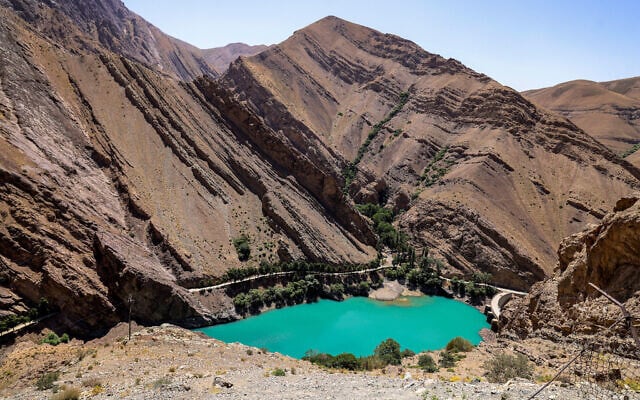Iranian President Masoud Pezeshkian on Wednesday hit out at Prime Minister Benjamin Netanyahu’s call a day earlier for Iranians to rise up against their government over power and water shortages.
Netanyahu’s video message on Tuesday came as Iran grapples with persistent water and electricity shortages amid spells of hot weather.
It also came just two months after a 12-day war between the arch-foes, which began with Israel’s June 13 attack on Iranian military and nuclear infrastructure, which it said was aimed at preventing the Islamic Republic from realizing its avowed plan to destroy the Jewish state.
In his remarks, Netanyahu called on Iranians to “take risks for freedom,” “take to the streets” and demand accountability from the Iranian government. He suggested bringing Israeli water experts to provide “cutting-edge technology and know-how” to Tehran.
In a post on X a day later, Pezeshkian hit out at Netanyahu.
Get The Times of Israel’s Daily Edition
by email and never miss our top stories
By signing up, you agree to the terms
“A regime that deprives Gaza of water and food now says it will bring water to Iran? A MIRAGE, NOTHING MORE,” wrote Pezeshkian in both Persian and English.
The reservoir behind the Amir Kabir dam along the Karaj river is pictured in Iran’s northern Alborz mountain range on June 1, 2025. (ATTA KENARE / AFP)
Iran’s ongoing water shortages have seen water levels in the country’s reservoirs drop dramatically. Pezeshkian warned two weeks ago that “if we cannot manage and people do not cooperate in controlling consumption, there won’t be any water in dams by September or October.”
Elevated temperatures that began in mid-July have also strained Iran’s power grid, prompting rolling blackouts nationwide. The frequent power outages have severely affected industrial output. Last week, Iranian authorities also ordered many government offices to close in a bid to cut power consumption.
Israel is considered one of the world leaders in desalination technology, and has shared its innovations with a number of countries worldwide.
It has also faced harsh criticism over the dire humanitarian conditions in Gaza, where water is scarce after much of the Strip’s infrastructure has been damaged during 22 months of fighting.
Israel says it operates two water pipelines into the Gaza Strip, providing millions of liters of water a day, and also says it is overseeing a UAE project to run a new pipeline that will supply water from a desalination facility in Egypt to Gazans along the coast.
Last month, one of the Strip’s desalination plants restarted operations after Israel restored its electricity supply.
Is The Times of Israel important to you?
If so, we have a request.
Every day, even during war, our journalists keep you abreast of the most important developments that merit your attention. Millions of people rely on ToI for fast, fair and free coverage of Israel and the Jewish world.
We care about Israel – and we know you do too. So today, we have an ask: show your appreciation for our work by joining The Times of Israel Community, an exclusive group for readers like you who appreciate and financially support our work.
Already a member? Sign in to stop seeing this
You appreciate our journalism

You clearly find our careful reporting valuable, in a time when facts are often distorted and news coverage often lacks context.
Your support is essential to continue our work. We want to continue delivering the professional journalism you value, even as the demands on our newsroom have grown dramatically since October 7.
So today, please consider joining our reader support group, The Times of Israel Community. For as little as $6 a month you’ll become our partners while enjoying The Times of Israel AD-FREE, as well as accessing exclusive content available only to Times of Israel Community members.
Thank you,
David Horovitz, Founding Editor of The Times of Israel
Already a member? Sign in to stop seeing this

